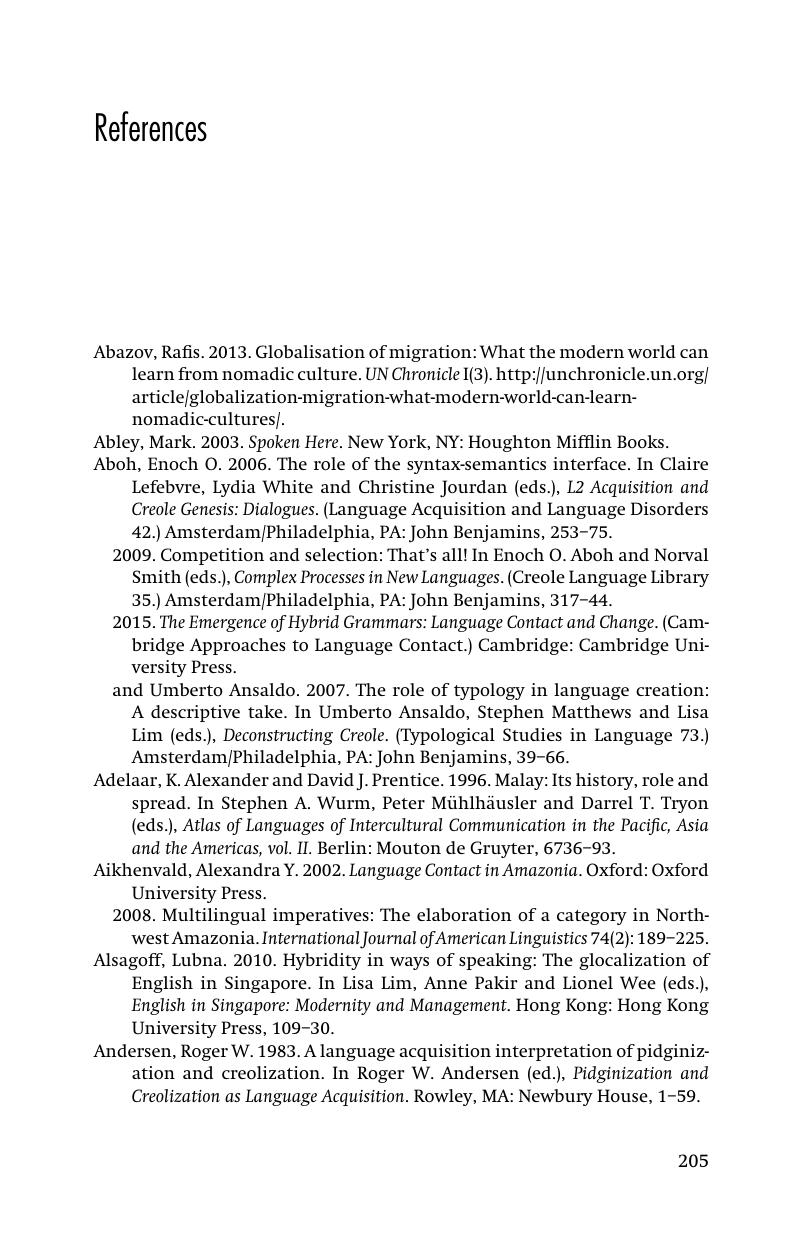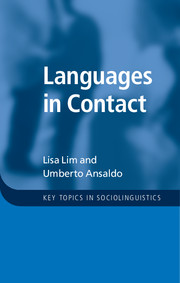Book contents
- Frontmatter
- Contents
- List of figures
- List of tables
- Preface
- Acknowledgements
- List of abbreviations
- 1 Perspectives on contact
- 2 Contact and code choice
- 3 Contact and creole formation
- 4 Contact and language evolution
- 5 Contact and ecology
- 6 Contact and shift
- 7 Contact and globalisation
- 8 Reflections and future directions
- References
- Index
- References
References
Published online by Cambridge University Press: 05 November 2015
- Frontmatter
- Contents
- List of figures
- List of tables
- Preface
- Acknowledgements
- List of abbreviations
- 1 Perspectives on contact
- 2 Contact and code choice
- 3 Contact and creole formation
- 4 Contact and language evolution
- 5 Contact and ecology
- 6 Contact and shift
- 7 Contact and globalisation
- 8 Reflections and future directions
- References
- Index
- References
Summary

- Type
- Chapter
- Information
- Languages in Contact , pp. 205 - 233Publisher: Cambridge University PressPrint publication year: 2015



